
10 min lesen
November 20, 2024
Are you wondering which cost-effective solution for automating your whistleblowing processes is better: outsourcing or in-house? This article examines the pros and cons of both approaches and provides a clear cost-benefit analysis. Find out which option makes your company more efficient and legally compliant.
Whistleblowing plays a crucial role in corporate compliance. It significantly helps prevent economic crimes and maintains trust in companies. Whistleblowers are often the first to uncover misconduct, enabling the initiation of investigations and corrective actions.
The automation of whistleblowing processes is particularly important. Digital whistleblowing tools enhance efficiency in handling and tracking complaints while providing a higher level of data security through strong encryption. They also facilitate compliance with legal requirements, helping to avoid legal consequences.
The protection of whistleblowers is another key aspect. Anonymous reporting options in digital whistleblowing tools encourage individuals to report misconduct. EU regulations have further emphasized the importance of such systems by mandating companies to establish internal reporting channels.
The EU Whistleblower Protection Directive requires companies to establish internal reporting channels for whistleblowers. These channels must be available not only to employees but also to external parties, such as suppliers and customers. Companies must acknowledge whistleblower reports within seven days and provide feedback within three months to comply with the directive.
Automation plays a critical role in helping businesses meet these legal requirements efficiently while also optimizing workflows.
The automation of whistleblowing processes offers numerous advantages. Predefined workflows in digital whistleblowing tools increase efficiency in processing and tracking complaints. This is particularly important as manual whistleblowing processes present numerous challenges and risks.
Another major benefit is scalability. Digital whistleblowing systems enable companies to handle a large number of reports efficiently without additional resource requirements. This is particularly relevant for companies legally required to establish and operate a whistleblowing channel efficiently.
Data security is another crucial aspect. Digital systems offer higher levels of security compared to traditional reporting methods through strong encryption. This ensures confidentiality of reports and protects whistleblowers.
Additionally, compliance with legal regulations is a key advantage of digital whistleblowing systems, helping companies avoid legal repercussions.
Implementing in-house solutions requires a thorough cost-benefit analysis. These solutions can help avoid penalties and reduce costs by detecting violations early. A cost-benefit overview of whistleblowing system automation is essential for making the best decision.
The implementation of an in-house software solution requires initial investments in technology as well as ongoing costs for maintenance and operation. These investments include software, hardware, and employee training. Despite the high initial costs, long-term savings can be achieved through more efficient processes and fewer penalties.
Ongoing maintenance and operational costs are also an essential factor in the cost analysis. This includes regular software updates, employee training, and general system maintenance.
In-house solutions can often be better tailored to a company’s specific needs, allowing for flexible scaling. This adaptability enables companies to meet specific requirements and comply with evolving security standards.
The ability to scale in-house solutions is particularly important for growing companies or those with changing compliance requirements. This flexibility offers a significant advantage over some outsourcing solutions.
Managing an in-house solution requires qualified personnel responsible for system oversight and maintenance. This includes IT support to ensure smooth technical operations and compliance managers to monitor regulatory compliance.
Specialized resources are also necessary to ensure efficient implementation and operation. Companies must ensure they have the necessary skills and expertise to maintain the integrity and security of the system.

Outsourcing solutions for whistleblowing processes can offer significant cost savings, particularly through the automation of report management. External service providers can be a cost-effective solution for small businesses that are legally required to operate a reporting system. The monthly costs for a whistleblowing software start as low as €99.
Another advantage of outsourcing is its flexible cost structure. Companies only pay for the services they actually need, leading to more efficient resource utilization. The cost-efficiency of outsourcing solutions shows that they can be an attractive alternative for many businesses.
External providers like Hintsuite offer a variety of models for whistleblowing systems, including modern web-based platforms and telephone reporting options. These providers often develop customized solutions tailored to the specific requirements of your company. This allows businesses to benefit from specialized tools and services that may not be available in-house.
Partnering with external service providers enables companies to utilize resources more efficiently and focus on their core business functions. This is particularly advantageous for companies without the internal capacity to effectively manage a whistleblowing system. With Hintsuite, you can ensure that your whistleblower system is professionally managed, while you focus on daily operations
The cost structure of outsourcing solutions typically includes both fixed and variable costs, depending on the type and scope of services chosen. Hintsuite offers various pricing models tailored to the needs of your company—ranging from affordable basic solutions to comprehensive premium packages.
Outsourcing contracts often include specific Service Level Agreements (SLAs) that define the quality of services provided, response times, and liability aspects. Hintsuite guarantees that its services meet the highest quality standards, with transparent SLAs ensuring that all expectations are met.
Advantages of Outsourcing:
Disadvantages of Outsourcing:
Companies should establish clear criteria to determine whether to implement in-house or outsourcing solutions for their whistleblowing processes. These criteria should include company size, specific compliance requirements, available resources, and long-term perspectives.
The size of a company can significantly impact its specific compliance requirements, which plays a crucial role in deciding between in-house and outsourcing solutions. Larger companies often have more complex compliance needs and may benefit from the customization and control that in-house solutions provide.
External whistleblowing service providers offer specialized solutions that help businesses implement compliance requirements effectively. For smaller companies, outsourcing can be a cost-efficient and flexible way to meet legal obligations.
Financial and human resources are key factors in determining whether an in-house solution is feasible or whether outsourcing is a better option. Careful budget planning and an assessment of available resources are essential to selecting the right whistleblowing solution.
The pricing structure for outsourcing solutions often includes fixed project budgets and package deals. Costs typically include monthly fees and additional charges for specialized services or system customizations.
Long-term perspectives and required flexibility are critical factors in selecting a whistleblowing solution that can adapt to future needs. Companies must ensure their chosen solution is both scalable and adaptable to changing corporate demands and legal regulations over time.
The ability to adjust and expand solutions over time is crucial for ensuring that the whistleblower system remains compliant with future requirements.
The implementation and integration of whistleblowing systems require careful planning and execution. Companies must ensure that they meet both technical and organizational requirements to establish an effective system. This includes the company’s registration and informing employees about the individual online reporting link.
Key factors in selecting a whistleblower software include scalability, user-friendliness, and compliance with legal regulations. A digitalized whistleblower system should be legally compliant, secure, and transparent.
The setup process should be quick and simple to maximize efficiency and ensure compliance with the EU Whistleblower Protection Directive.
Training initiatives promote the acceptance of the whistleblowing system and help establish an open corporate culture. Regular training sessions enhance employee understanding of the whistleblowing process and build trust in the system.
Whistleblowing training should be conducted on a regular basis to increase awareness and knowledge among employees. This ensures that all staff members understand the importance and functionality of the system and know how to use it correctly.
By 2025, significant legal changes related to whistleblowing are expected, particularly due to the EU Whistleblower Directive. These changes will require companies to re-evaluate and adapt their whistleblowing systems to comply with new regulations.
The technical infrastructure must ensure the protection of sensitive data to guarantee the security of whistleblower reports. A robust data protection concept is essential to maintain the confidentiality of information in the whistleblowing system.
In summary, both in-house and outsourcing solutions for the automation of whistleblowing processes have their advantages and disadvantages. In-house solutions offer high adaptability and control but require significant initial investments and qualified personnel. Outsourcing provides cost savings and access to specialized expertise, but it can lead to dependency on external service providers.
With the upcoming legal changes in the EU, it is more important than ever for companies to take proactive measures and implement robust whistleblowing systems. Only in this way can they ensure compliance with legal requirements while maintaining integrity and trust within their organization.
An automated whistleblowing system ensures efficiency, high data security through encryption, and compliance with relevant legal regulations. This fosters a safe and confidential environment for whistleblowers.
How can companies benefit from outsourcing solutions?
EU regulations play a crucial role as they require companies to establish secure reporting channels for whistleblowers and adhere to strict response deadlines. Automation makes it easier for companies to efficiently comply with these legal requirements.
Companies should consider company size, compliance requirements, and long-term perspectives when deciding between in-house and outsourcing solutions. A comprehensive cost-benefit analysis and clear decision-making criteria are essential.

October 8, 2025
The biomethane sector is entering a decisive phase. Driven by climate targets, stricter regulations, and rising demand for renewable energy, the market is experiencing rapid growth. Yet, this expansion also creates new op...

February 3, 2025
The future of ERP lies in more efficient and flexible business solutions. In this article, you will discover how .NET-based ERP systems help you optimize processes while remaining adaptable. Explore the key benefits and technological advancemen...